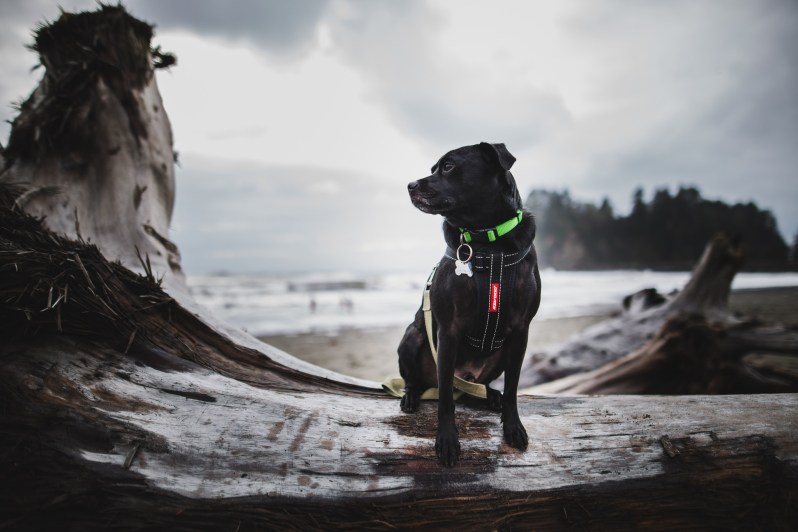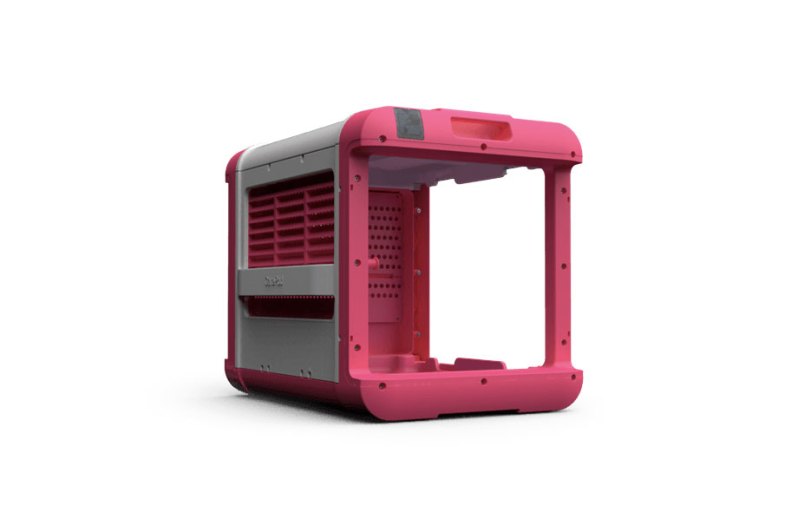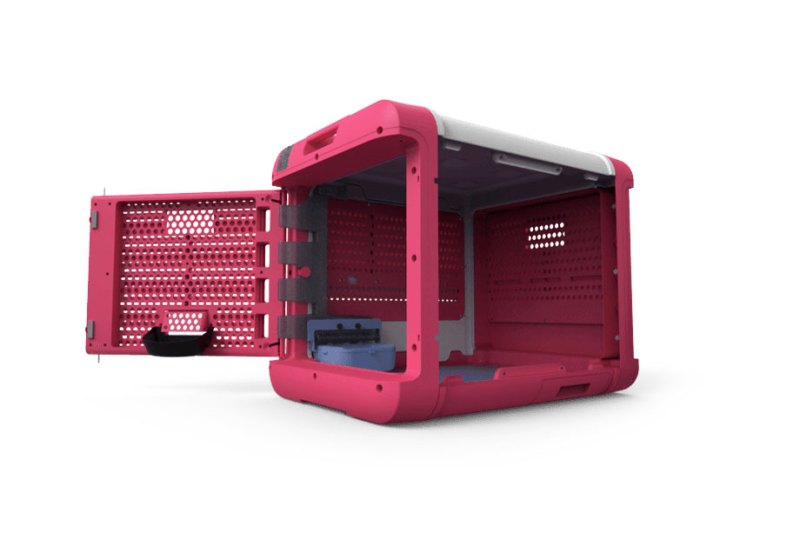
As horrific as modern air travel might seem for us humans, pets often fare far worse in the skies. Dogs and cats carried onboard suffer the same turbulence, incessant engine noise, and surly fellow passengers as we do, except that we can’t explain to them logically that it’s all going to be OK. Animals traveling in the cargo hold experience all of the above, plus it’s often dark, cold, and lonely to boot. Now Delta is upping its travel game for our furry friends with a high-tech pet carrier unlike any other.

CarePod is a new $850 carrier that guarantees the best possible travel experience for checked pets. Industrial-grade walls provide insulation against the harsh climate changes pets often experience in flight. Built-in “blinds” are specially angled to block out unfamiliar outside stressors. All of the materials are human-grade and guaranteed non-toxic to animals, while a special antibacterial UV coating provides additional durability and sanitary protection. There’s even a spill-proof, liter-sized water dish that automatically refills to ensure every animal has constant access to fresh water. The best feature, however, is that each pod is GPS-enabled to connect to Delta’s Cargo Control Center. Trained, dedicated experts monitor every pet’s journey 24/7, and owners can track their pet’s progress via smartphone in real-time.
Currently, CarePods are only available for dogs and cats up to 50 pounds. At roughly two feet in height, the carriers are spacious enough to allow medium-sized animals to stand up and move around a bit. The dimensions are also compliant with the International Air Transport Association’s regulations, which is one less thing for owners to worry about.

Delta came under fire years back after several pets died en route while in checked carriers. Even though that news has largely fallen out of the public consciousness, the airline has since been hard at work to find a better way for pets to travel. It began working with the CarePod company in 2018 and officially debuted the CarePod program in November of 2019. The program is timely, especially given an industry-wide crackdown on so-called emotional support animals. New federal mandates could allow airports to deny boarding for some animals in passenger cabins. If the proposal passes, many air travelers will be forced to check their pets per the traditional rules.
CarePod is currently a limited pilot (get it?) program available at eight U.S. airports, including Atlanta, Boston, Los Angeles, Minneapolis, New York (JFK and LaGuardia), San Francisco, and West Palm Beach. Delta is already looking to expand to other domestic destinations in 2020. Pet owners can book the exclusive pods between three and 13 days ahead of their departure date.



